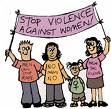This is a guest post by Michelle Sieff, Assistant Director of the American Jewish Committee’s Africa Institute.
Mahmood Mamdani, the eminent professor of Government at Columbia University, has published an appalling article on Zimbabwe in the London Review of Books.
Before I ravage him, let me first say that in the past I greatly admired Professor Mamdani. His two books on African politics - Citizen and Subject and When Victims Become Killers - are landmarks in the field of Comparative Politics. But my appreciation of his past work does not prevent me from recognizing his recent descent into sophistry.
In the article, Mamdani defends Robert Mugabe, on the grounds that the Zimbabwean dictator is pursuing “land reform” policies. Mamdani says these policies “have won him considerable popularity, not just in Zimbabwe but throughout Southern Africa.” He argues that the people of Zimbabwe are likely to remember 2000-2003 as the end of the settler colonial era, just as, according to Mamdani, the Ugandan people experienced the Asian expulsion of 1972 - not the formal handover in 1962 - as the dawn of true independence.
No doubt that the most brutal political regimes in history - including Hitler’s - had their supporters. But is it true that most Ugandans remember Amin’s Asian expulsion as the dawn of true independence? Not if you ask current President Museveni, who has said that the Asian expulsion was a ghastly error and has desperately tried to encourage Asians to return.
Mamdani’s argument is marked by dogmatic third-worldism, arrogance, and dishonesty. He claims that Mugabe’s “land reform” policies are wildly popular. This is like claiming Tanzanian President Julius Nyerere’s brutal rural “villagisation” policy or even Pol Pot’s genocidal version were popular.
Other than Mugabe’s cronies, who else supports Mugabe’s “land reform” policies? Mamdani never bothers to tell us. Towards the end of the article, he implies that in rural Zimbabwe, groups of “peasants” support Mugabe, but he never identifies them and certainly never permits them to speak for themselves. Public opinion data suggests Zimbabweans do not care about “land reform”. In a 2005 Afrobarometer survey 59% of Zimbabweans said that food shortages and the economy were their most important problems, and none said that land was an important issue. Three quarters did not have confidence in the government’s ability to solve these problems.
For years, we have seen mounting evidence of opposition to Mugabe-from trade unions, civil society, and opposition party members-and his brutal efforts to repress them. Mamdani craftily dismisses these inconvenient facts. What about the reality that in 2000 Mugabe’s proposal to change the constitution to allow land seizures were defeated in a referendum? Mamdani says only 20 per cent of the electorate cast their vote and implies that these mysterious peasants - who stayed home - actually supported Mugabe.
What about the countless fact-based reports by groups like Human Rights Watch about Mugabe’s violent manipulation of the electoral process since 2000? Mamdani devotes one line to this problem. He says that in 2004, the violence “began to abate” and that there was “noticeably less violence” surrounding the parliamentary elections of 2005.
Mamdani excuses Mugabe’s crimes because these crimes have advanced a superior end - a “democratic revolution” in the property pyramid, adding more than a 100,000 small property owners. To refute the conventional wisdom that much of the seized land has gone to Mugabe’s cronies, not the poor, he relies on this paper by Ian Scoones, a scholar at the University of Sussex, who refutes the “myth” that the main beneficiaries of land reform have been Mugabe’s cronies. His evidence? Interviews from 400 households in one province called Masvingo. Now I am sure that some of the seized land has gone to ordinary people. But to call it all a “democratic revolution” is surely an exaggeration.
Throughout the article Mamdani is determined to erase the history of Mugabe’s violence and repression. By Mamdani’s lights, “it is striking how little turmoil accompanied this massive social change.” Every fact is erased: the mass torture, the beatings, the 4 million people who have fled, the five million who now face starvation, the 1.4 million at risk from the current cholera epidemic.
Mamdani will stop at nothing to excuse Mugabe. He argues that the collapse in food production is a result of drought and western sanctions. I don’t doubt that there are now multiple causes of Zimbabwe’s food crisis, but Mugabe’s violent land seizures have played a massive role.
Mamdani’s airbrushing of history begs the obvious question: Why? What happened to the once brilliant scholar who used to respect facts and articulate balanced arguments? I have a theory: 9/11 happened. And Mamdani, who opposed the Iraq war, has fashioned himself into an ideologue in the style of his Columbia colleague, the late Edward Said . He now believes that there is no longer any evil in the world to oppose, except the US and Israel.
This worldview explains many of his recent works and activism. It explains why Mamdani is one of the most outspoken supporters at Columbia of a campaign calling for the university to divest its holdings from companies that sell weapons to Israel. It explains his 2004 book, Good Muslim, Bad Muslim, where he argued that the spread of terrorism owes more to US anti-Communist intervention than to anything Osama bin Laden ever did. It explains why Mamdani equated American “neoconservatives” and jihadists in a 2004 Foreign Affairs article. It explains another article he wrote for the London Review of Books, in 2007, where he laboriously denied that the atrocities in Darfur were a genocide and impugned the motives of Darfur activists, suggesting that they were puppets of the Bush administration’s anti-Arab war on terror. And it explains why Mamdani is hell-bent on justifying Mugabe’s tyranny in Zimbwabe.
Mahmood Mamdani, the eminent professor of Government at Columbia University, has published an appalling article on Zimbabwe in the London Review of Books.
Before I ravage him, let me first say that in the past I greatly admired Professor Mamdani. His two books on African politics - Citizen and Subject and When Victims Become Killers - are landmarks in the field of Comparative Politics. But my appreciation of his past work does not prevent me from recognizing his recent descent into sophistry.
In the article, Mamdani defends Robert Mugabe, on the grounds that the Zimbabwean dictator is pursuing “land reform” policies. Mamdani says these policies “have won him considerable popularity, not just in Zimbabwe but throughout Southern Africa.” He argues that the people of Zimbabwe are likely to remember 2000-2003 as the end of the settler colonial era, just as, according to Mamdani, the Ugandan people experienced the Asian expulsion of 1972 - not the formal handover in 1962 - as the dawn of true independence.
No doubt that the most brutal political regimes in history - including Hitler’s - had their supporters. But is it true that most Ugandans remember Amin’s Asian expulsion as the dawn of true independence? Not if you ask current President Museveni, who has said that the Asian expulsion was a ghastly error and has desperately tried to encourage Asians to return.
Mamdani’s argument is marked by dogmatic third-worldism, arrogance, and dishonesty. He claims that Mugabe’s “land reform” policies are wildly popular. This is like claiming Tanzanian President Julius Nyerere’s brutal rural “villagisation” policy or even Pol Pot’s genocidal version were popular.
Other than Mugabe’s cronies, who else supports Mugabe’s “land reform” policies? Mamdani never bothers to tell us. Towards the end of the article, he implies that in rural Zimbabwe, groups of “peasants” support Mugabe, but he never identifies them and certainly never permits them to speak for themselves. Public opinion data suggests Zimbabweans do not care about “land reform”. In a 2005 Afrobarometer survey 59% of Zimbabweans said that food shortages and the economy were their most important problems, and none said that land was an important issue. Three quarters did not have confidence in the government’s ability to solve these problems.
For years, we have seen mounting evidence of opposition to Mugabe-from trade unions, civil society, and opposition party members-and his brutal efforts to repress them. Mamdani craftily dismisses these inconvenient facts. What about the reality that in 2000 Mugabe’s proposal to change the constitution to allow land seizures were defeated in a referendum? Mamdani says only 20 per cent of the electorate cast their vote and implies that these mysterious peasants - who stayed home - actually supported Mugabe.
What about the countless fact-based reports by groups like Human Rights Watch about Mugabe’s violent manipulation of the electoral process since 2000? Mamdani devotes one line to this problem. He says that in 2004, the violence “began to abate” and that there was “noticeably less violence” surrounding the parliamentary elections of 2005.
Mamdani excuses Mugabe’s crimes because these crimes have advanced a superior end - a “democratic revolution” in the property pyramid, adding more than a 100,000 small property owners. To refute the conventional wisdom that much of the seized land has gone to Mugabe’s cronies, not the poor, he relies on this paper by Ian Scoones, a scholar at the University of Sussex, who refutes the “myth” that the main beneficiaries of land reform have been Mugabe’s cronies. His evidence? Interviews from 400 households in one province called Masvingo. Now I am sure that some of the seized land has gone to ordinary people. But to call it all a “democratic revolution” is surely an exaggeration.
Throughout the article Mamdani is determined to erase the history of Mugabe’s violence and repression. By Mamdani’s lights, “it is striking how little turmoil accompanied this massive social change.” Every fact is erased: the mass torture, the beatings, the 4 million people who have fled, the five million who now face starvation, the 1.4 million at risk from the current cholera epidemic.
Mamdani will stop at nothing to excuse Mugabe. He argues that the collapse in food production is a result of drought and western sanctions. I don’t doubt that there are now multiple causes of Zimbabwe’s food crisis, but Mugabe’s violent land seizures have played a massive role.
Mamdani’s airbrushing of history begs the obvious question: Why? What happened to the once brilliant scholar who used to respect facts and articulate balanced arguments? I have a theory: 9/11 happened. And Mamdani, who opposed the Iraq war, has fashioned himself into an ideologue in the style of his Columbia colleague, the late Edward Said . He now believes that there is no longer any evil in the world to oppose, except the US and Israel.
This worldview explains many of his recent works and activism. It explains why Mamdani is one of the most outspoken supporters at Columbia of a campaign calling for the university to divest its holdings from companies that sell weapons to Israel. It explains his 2004 book, Good Muslim, Bad Muslim, where he argued that the spread of terrorism owes more to US anti-Communist intervention than to anything Osama bin Laden ever did. It explains why Mamdani equated American “neoconservatives” and jihadists in a 2004 Foreign Affairs article. It explains another article he wrote for the London Review of Books, in 2007, where he laboriously denied that the atrocities in Darfur were a genocide and impugned the motives of Darfur activists, suggesting that they were puppets of the Bush administration’s anti-Arab war on terror. And it explains why Mamdani is hell-bent on justifying Mugabe’s tyranny in Zimbwabe.
NOTA: O referido texto de Mamdani tem sido utilizado por certos "iluminados" que se consideram íntegros e apelidam de desonestos a quem ousa pensar de modo difrente, numa tentativa de branquearem as acções criminosas de Mugabe.


























No comments:
Post a Comment